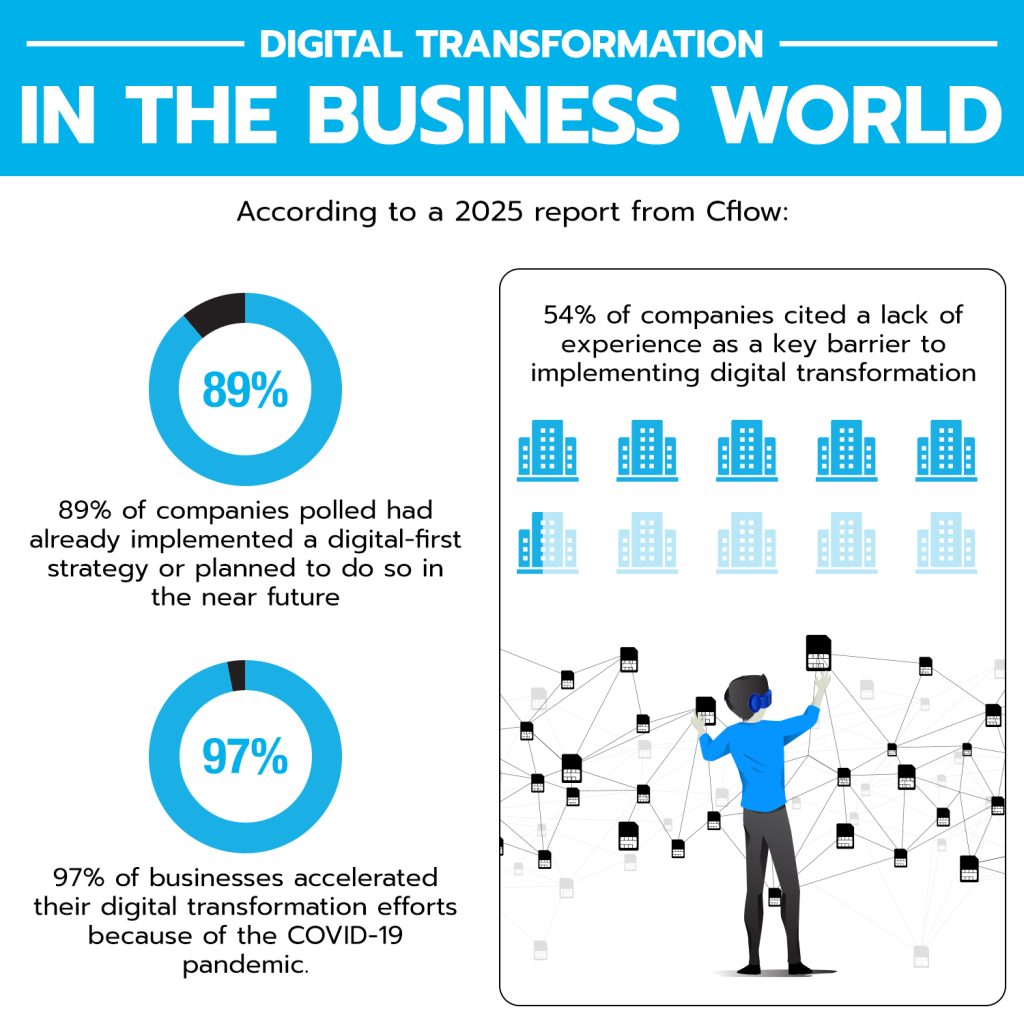Anisuzzaman Chowdhury is an entrepreneur and business leader with interests in a range of industries, including pharmaceuticals, construction and energy. This article will look at innovation and the many business benefits of establishing a culture of innovation.
Whether they’re an inexperienced founder keen to kick-start their business, a small business owner seeking to grow their enterprise or a seasoned CEO of a multinational organisation, savvy entrepreneurs recognise the need to develop a robust innovation strategy capable of propelling the business to new heights. The attached infographic features some eye-opening statistics about business transformation.

Innovation is the process of transforming creative ideas into tangible solutions to a problem or pain point in people’s lives. In addition to driving business growth, improving efficiency and meeting the needs of customers, innovation also helps businesses to enhance decision making and problem solving within the organisation itself. The attached PDF provides an overview of some of the most sought-after business leadership qualities in 2025.
In essence, innovation is about doing things differently to create value. Business innovation involves introducing new ideas, products, services or methods that result in significant improvements or enhancements within the organisation. Take for example Tesla’s commitment to launching the world’s first line of electric vehicles in 2008 or the introduction of Google’s revolutionary new search engine in 1998. Both of these innovations provided solutions that were light-years ahead of their time, culminating in a paradigm shift in their respective industries.
Not all modern businesses innovate at this level. Nevertheless, innovation is crucial in the modern world, providing the potential to boost revenue, create new jobs and strengthen customer trust. In an age characterised by rapid technological advancements, business innovation is a critical component for commercial success, enabling enterprises to achieve a competitive edge and maintain their lead over industry rivals. The attached video takes a closer look at why it is so important for businesses to differentiate themselves from their competitors.
In business, innovation falls into two main categories: disruptive innovation, where smaller businesses challenge established organisations, and sustaining innovation, which centres around enhancing organisational processes and technologies with the aim of improving product lines. The world’s most successful organisations invest in achieving both types of innovation, enabling them to not only maintain their market position but also continue to expand their reach. While unforeseen obstacles and challenges are part and parcel of running and growing a business, innovation enables forward-looking organisations to stay ahead of the curve, better placing them for growth and success.

